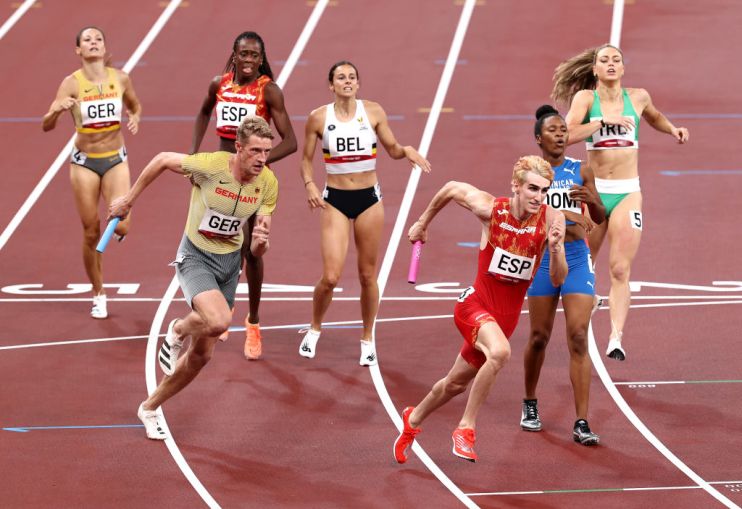Paris 2024: Olympic Games will achieve gender equality but choppy waters ahead

If Kenyan long-distance runner Peres Jepchirchir defends her Olympic title this year in Paris, she’s in for one almighty different reception at her medal ceremony compared to the Covid-hit Tokyo Games of 2021.
Because for the first time ever the tradition of handing the men’s marathon winner his gold medal at the closing ceremony will be swapped out, making way for the women’s marathon to take the glory on the final night of sporting festivities.
It is just one of the changes that organisers hope will make Paris 2024, which marks 100 days to go today, the most equal Olympics yet.
When the Games were last in the French capital, in 1924, women made up 4.4 per cent of the athletes, and there were only 175 participants across 10 disciplines – including swimming, fencing and table tennis, but not athletics.
Now at the 33rd Olympiad there will be a total of 10,500 athletes – over 50 per cent of whom will be women. Over 85 per cent of the 32 sports will have full gender equality, with the true numbers showing there will be 152 women’s events and 157 men’s events.
Olympic change
Changes have been made to achieve parity not just by increasing the number of women in each event, though. Men are now able to compete in synchronised swimming, known as artistic swimming, although it is impossible to achieve parity in other events such as women’s heptathlon and men’s decathlon.
“We were very happy that this year in particular, when we celebrate that we’re going back to Paris after 100 years, that this is going to be the first time the Olympics are going to have 50:50 parity,” Nicole Hoevertsz, International Olympic Committee vice-president, tells City A.M.
“That required a lot of work from the side of the International Federations. The poorer places that were allocated [help], were actually allocated to mostly women and women’s events.”
But true 50:50 is elusive, adds Aruban former synchronised swimmer Hoevertsz.
“I don’t think that is really possible,” she adds. “There are some sports like synchronised swimming where you’re going to see the reverse, where it used to be a sport that was only open for women. Now in Paris, it’s going to be open for the first time for men for the mixed and the team.
“So you get to see different sports, depending on the actual events and the actual programme. Maybe it’s not 100 per cent possible to have a 50:50 but I think we have come a long way.”
Transgender issues
But there remains to be concerns over the full run to gender parity with some former Olympians questioning where transgender athletes – male to female – fit into the Games from a fairness perspective.
The current IOC line states that individual federations will decide on their transgender policy, with Hoevertsz saying “no if it complies with what we agreed to” when pressed on whether the Olympic body would try to stand in the way of any federation policy.
Critics say policies such as the preference for at least one male and one female athlete in each nation’s delegation, and the need for both a male and female flag bearer, are unnecessary and tokenistic. One former Olympic coach mused to City A.M. whether, theoretically, a micronation would be disciplined because they only took one female athlete.
It appears choppy waters remain in the details of what will be dubbed the gender parity Olympics, and those formerly and currently in the sport still have questions over parts of the journey to 50:50.
But in 2024, 100 years on from the last Paris Games, there is a stark shift towards true equality at the Olympics. And when those 10,000-plus athletes descend on the French capital for two weeks of elite, over half of whom are women, there will be an important moment in the countless chronicles of sporting history.
Because a 50:50 games is a triumph, and something fans should celebrate across this sporting summer.